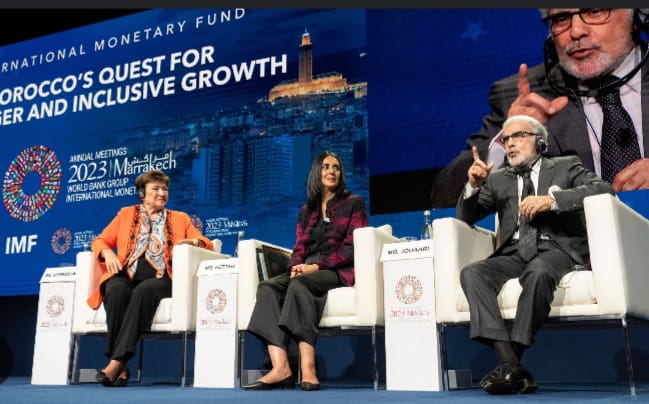Symposium of Episcopal Conferences of Africa and Madagascar (SECAM) has urged global financial leaders to embrace a vision for Africa rooted in unity, collaborative action measures to address African , and a transformative mission and to promote urgent countries’ interlinked crises in the ongoing World Bank and International Monetary Fund Annual Meetings in Marrakesh, Morocco.
The Meetings happening this week from October 9-15, 2023 mark 50 years since they were last convened in Africa and echo profoundly the universal themes of the ongoing Synod of the Catholic Church under the theme “For a Synodal Church: Communion, Participation, and Mission’.
The religious leaders noted that in the aftermath of the COVID19 pandemic, most African countries are still struggling to regain their 2019 economic performance levels.
According to recent reports by the Food and Agriculture Organization, there are nearly 600 million people living in poverty and approximately 280 million who are experiencing hunger.
Furthermore, the challenges posed by the Ukraine war and regional conflicts, along with the increasing cost of living and the world’s highest climate vulnerability, all add to the difficulties faced by the most vulnerable on the continent.
Although droughts, fires, floods, rising sea levels, and cyclones pose a threat to people worldwide, Africa stands out as the most climate vulnerable region.
The leaders reiterated that during the recent Nairobi Summit, African Heads of State and Government emphasized that while Africa is not historically responsible for global warming, it disproportionately suffers the consequences, affecting lives, livelihoods, and economies.
“As we prepare to celebrate a new Jubilee year in 2025 under the motto Pilgrims of Hope , we recall the Holy Father Pope Francis’ words: “The forthcoming Jubilee can contribute greatly to restoring a climate of hope and trust as a prelude to the renewal and rebirth that we so urgently desire; This will indeed be the case if we are capable of recovering a sense of universal fraternity and refuse to turn a blind eye to the tragedy of rampant poverty that prevents millions of men, women, young people and children from living in a manner worthy of our human dignity,” they averred.
In addition, the religious leaders have expressed confidence that the financial leaders who are gathering in this critical moment will prioritize the well-being of humanity.
“We pray that they make choices that promote life, not only for themselves but also for future generations, by prioritising life and a sustainable future for Africa,” they added.
In alignment with the upcoming Jubilee year’s spirit, the clergy have appealed for the removal of the obstacle of debt that prevents many countries from having the resources to invest in crisis response and protect their most vulnerable. “They added that in 1999 the Holy Father said: “Debt relief is, in many ways, a precondition for the poorest countries to make progress in their fight against poverty.”
Although the landscape of creditors and debt features has evolved since the Pope’s message in 1999, with private creditors accounting for over 45 per cent of the owed debt, the underlying message still holds true today.
To successfully address debt crises, it is crucial to tackle the complexities arising from multiple creditors which necessitate the coordination of efficient, prompt, and comprehensive policies that encompass both public and private creditors.
Additionally, they called for a massive scale up of the flow of resources for development in affordable terms. .
“The current momentum for reform of international financial institutions
presents an opportunity to adapt them according to present needs and requirements. This can be achieved through strengthening human development values in their missions, boosting their financial capital, and improving their instruments for financing. Moreover, it is important to ensure that any additional resources are accompanied by increased accountability and meaningful involvement of the communities and societies affected by their programmes,” they said.
The leaders also urged for prevention of new cycles of high indebtedness by setting foundation borrowing, debt contract authorizations for responsible lending and disclosure safeguards, and debt reduction clauses that trigger automatically when debtors suffer natural disasters or other shocks.
Finally, the clergy called on the leaders meeting in Marrakesh to use this occasion and consider making the World Bank/IMF Annual Meetings’ return to Africa as an opportunity to embark on a fresh journey towards Jubilee 2025 and envision a path that fosters hope and dignity for the current and future generations in Africa.


